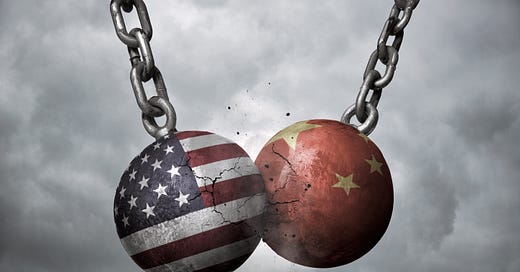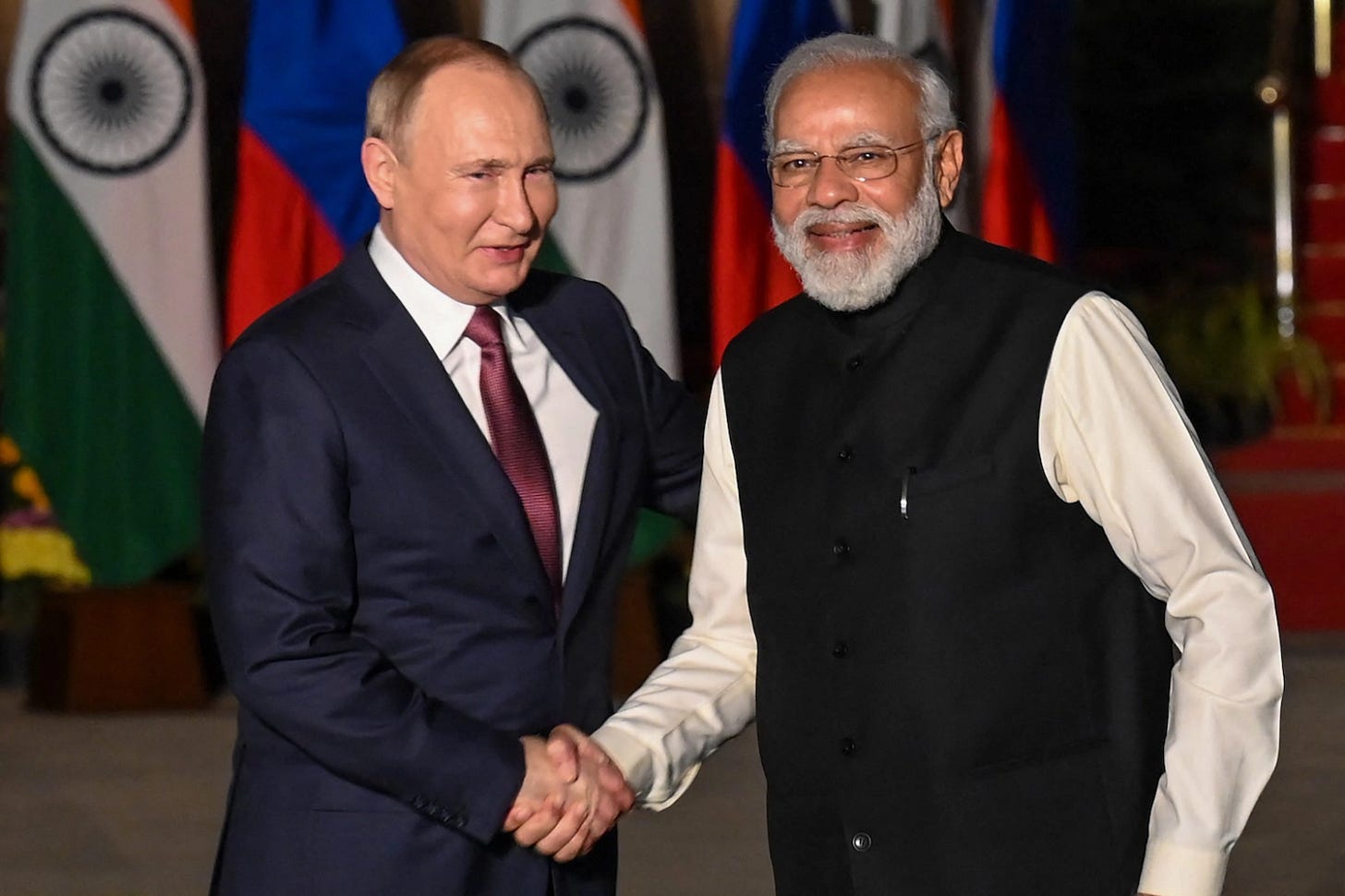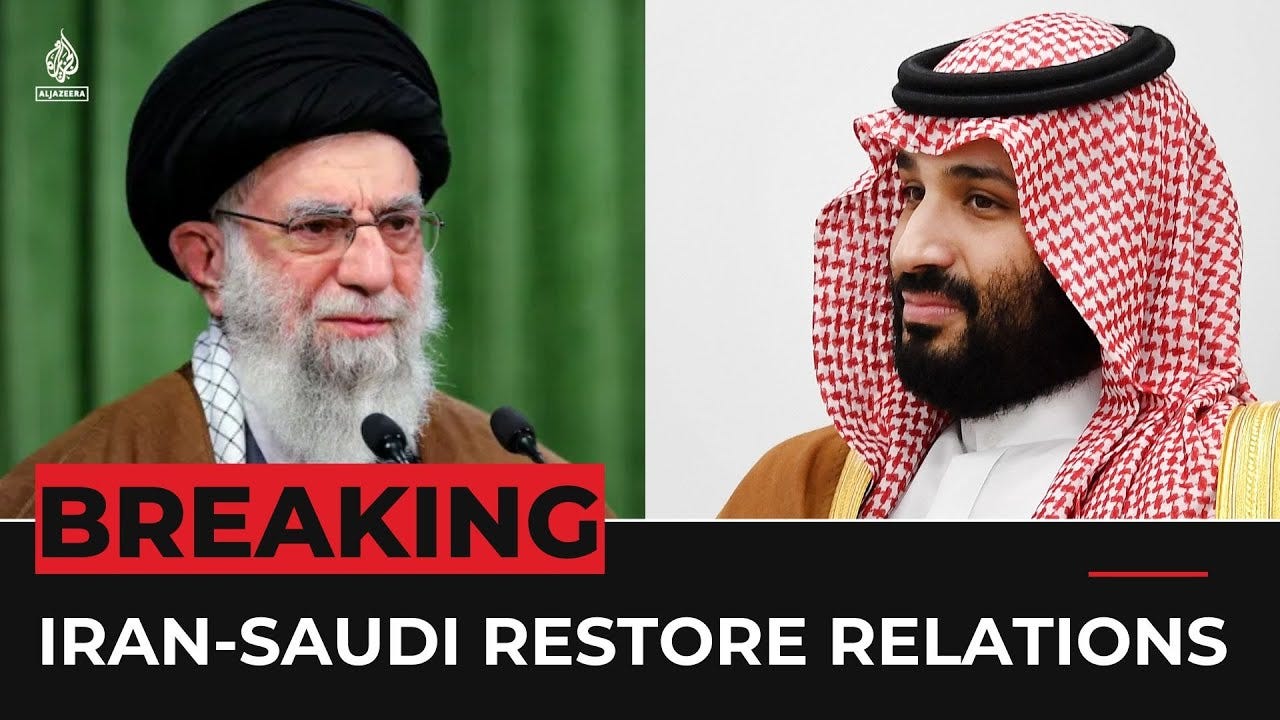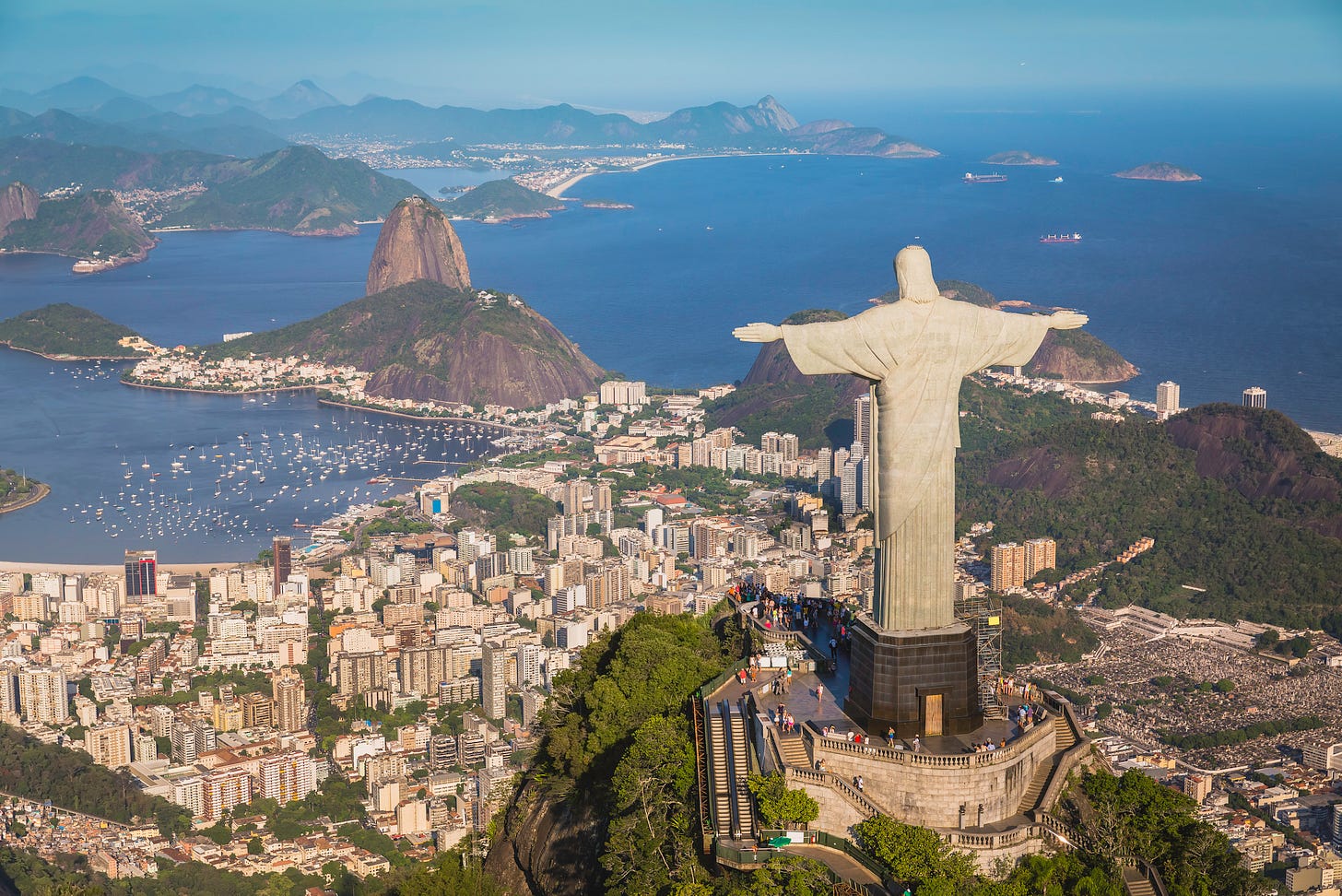Emerging Markets Monitor - April 18
Lagarde: US-China Rift Is Inflationary, Egypt Devaluation Looms, India-Russia Free Trade Deal?, Iran Invites Saudi King, Lat-Am Policymakers: Inflation Not Over
The Top 5 Stories Shaping Emerging Markets from Global Media - April 18
Christine Lagarde Says US-China Rift to Push Inflation Higher
Financial Times
“Geopolitical rifts caused by rivalry between the US and China could push up inflation by 5 per cent and threaten the leading positions of the dollar and euro, Christine Lagarde has warned.”
“‘If global value chains fragment along geopolitical lines, the increase in the global level of consumer prices could range between around 5 per cent in the short run and roughly 1 per cent in the long run,’ Lagarde told a Council on Foreign Relations event in New York.”
“Some countries could also reduce their dependence on the dollar and euro, she said, citing ‘anecdotal evidence’ of increased usage of the Chinese renminbi or the Indian rupee in cross-border trade, and greater stocks of gold being used as an alternative reserve asset.”
“As developing countries trade more with China, which has become the world’s biggest exporter, they are inclined to increase their holdings of renminbi as reserves, Lagarde said. ‘So far, the data do not show substantial changes in the use of international currencies,’ Lagarde said. ‘But they do suggest that international currency status should no longer be taken for granted.’”
“Lagarde said a long period of ‘relative stability may now be giving way to one of lasting instability resulting in lower growth, higher costs and more uncertain trade partnerships.’” The FT reports.
Egypt Devaluation Calls Grow Louder
Bloomberg
“Traders are betting that growing pressures on the Egyptian pound could soon force the central bank to allow another devaluation as the nation’s pledge to move to a flexible exchange rate comes under the scrutiny of the International Monetary Fund.”
“The IMF is waiting to see Egypt enact more of the wide-ranging reforms it pledged — including genuine flexibility in the currency and privatization deals for state assets— before carrying out the first review of a $3 billion rescue program. The IMF approved a 46-month program for Egypt in December, later signaling the review would likely be completed in March.”
“Derivatives used to hedge risks or for speculation signaled the approach of Egypt’s fourth devaluation since March 2022, belying calm in the spot market. Long stretches of stability for the currency even as its value falls on the local black market have raised questions over the authorities’ commitment to a flexible exchange rate.”
“The London-listed securities of Egypt’s largest listed bank are also signaling expectations of another devaluation in the North African nation’s currency. Commercial International Bank’s depository receipts on the London Stock Exchange traded at a record discount of 36% to their shares in Cairo last week. That reflects expectations that Egypt will allow its currency to weaken again, according to Hasnain Malik, a strategist at Tellimer in Dubai.” Netty Idayu Ismail reports.
India, Russia Talk Free Trade Deal in Step-Up of Relations
Reuters
“India and Russia are discussing a free trade agreement (FTA), the Russian trade minister said on Monday, an announcement that could deepen bilateral commercial ties that have flourished since war broke out in Ukraine.”
“The FTA talks mark a step-up in economic relations between the two countries despite calls from Western countries for India to gradually distance itself from its dominant weapons supplier, Russia, over its February 2022 invasion of Ukraine.”
“India's imports from Russia more than quadrupled to $46.33 billion over the last fiscal year, mainly through oil.”
“…The announcement came at a time when New Delhi is also engaged in FTA discussions with Britain, the European Union and the Gulf Cooperation Council.”
“Reuters reported in November that Russia was potentially seeking to import more than 500 products from India for key sectors including cars, aircraft and trains, given that Western sanctions imposed over Russia's military action in Ukraine have undermined its ability to keep core industries operating.” Reuters reports.
Geopolitics: Iran Invites Saudi King to Visit Tehran
“Iran has invited Saudi Arabia’s King Salman bin Abdulaziz to visit the country, an Iranian Foreign Ministry spokesman said Monday, a sign of the rapidly improving ties between two longtime regional rivals.”
“The invitation comes after the two governments agreed to re-establish diplomatic relations last month in a deal brokered by China, which ended seven years of estrangement and jolted the geopolitics of the oil-rich region.”
“Iranian Foreign Ministry spokesman Nasser Kanaani announced the invitation at a regular press conference Monday. There was no immediate response from Riyadh. Iranian President Ebrahim Raisi has already accepted an invitation to visit Saudi Arabia but no date has been set.”
“A visit by the Saudi monarch to Iran would be a major signal of the improved relations between the countries. The 87-year-old King Salman has health problems and hasn’t traveled outside the kingdom since 2019. His son, Crown Prince Mohammed bin Salman, is the kingdom’s day-to-day ruler.”
“…Saudi-Iranian relations have gone through ups and downs over the last 40 years. No Saudi monarch has visited Iran since the 1979 Islamic Revolution overthrew the regime of Shah Mohammad Reza Pahlavi—who was generally friendly with the Saudi royals. Ayatollah Ruhollah Khomeini, the Shia cleric who led Iran’s revolution, called for Saudi Arabia and other pro-American monarchies in the Persian Gulf to be overthrown.” WSJ reports.
Lat-Am Policymakers Say the Fight Against Inflation Far From Over
Buenos Aires Times
“Latin American policymakers who led the world into aggressive interest rate hikes after the pandemic are now warning investors that their battle against inflation will take longer than expected.”
“Brazilian and Chilean officials said during the International Monetary Fund’s Spring Meetings they still need more proof that price pressures are easing before cutting borrowing costs. Peru central bank head Julio Velarde didn’t mince words, saying ‘the worst case scenario for a central banker is to lower the interest rate only to hike it again two or three months later.’”
“Put together, in both closed-door and public events during a week of high-profile meetings in Washington, the region’s top economic authorities threw cold water over hopes of an imminent end to tight monetary policy. On the contrary, their message to developed economies was clear: bringing inflation back to their targets will be a long and messy battle.”
“‘Central bankers are now telling the market to be patient, as they have to hold rates higher,’ Ernesto Revilla, head of Latin American economics at Citigroup Inc., said during the meetings. ‘They are in a wait-and-see mode.’”
“The message marks a sharp turnaround from the previous round of IMF meetings in October, when regional delegations were celebrating declining expectations for consumer-price increases. Unlike the developed world, they were hoping that disinflation was just around the corner.”
“Still, Chile is now holding borrowing costs steady at an over two-decade high, while Brazil has one of the world’s steepest real rates. Mexico and Colombia are refusing to call an end to their tightening campaigns. Though an outlier, Argentina saw its annual inflation rocket to 104.3 percent, the highest level since 1991.”
“Around the region, core measures of inflation that strip out volatile items like food and energy are still accelerating, making it harder to cut rates without the risk of having to reverse course and lift them again.” Buenos Aires Times reports.








